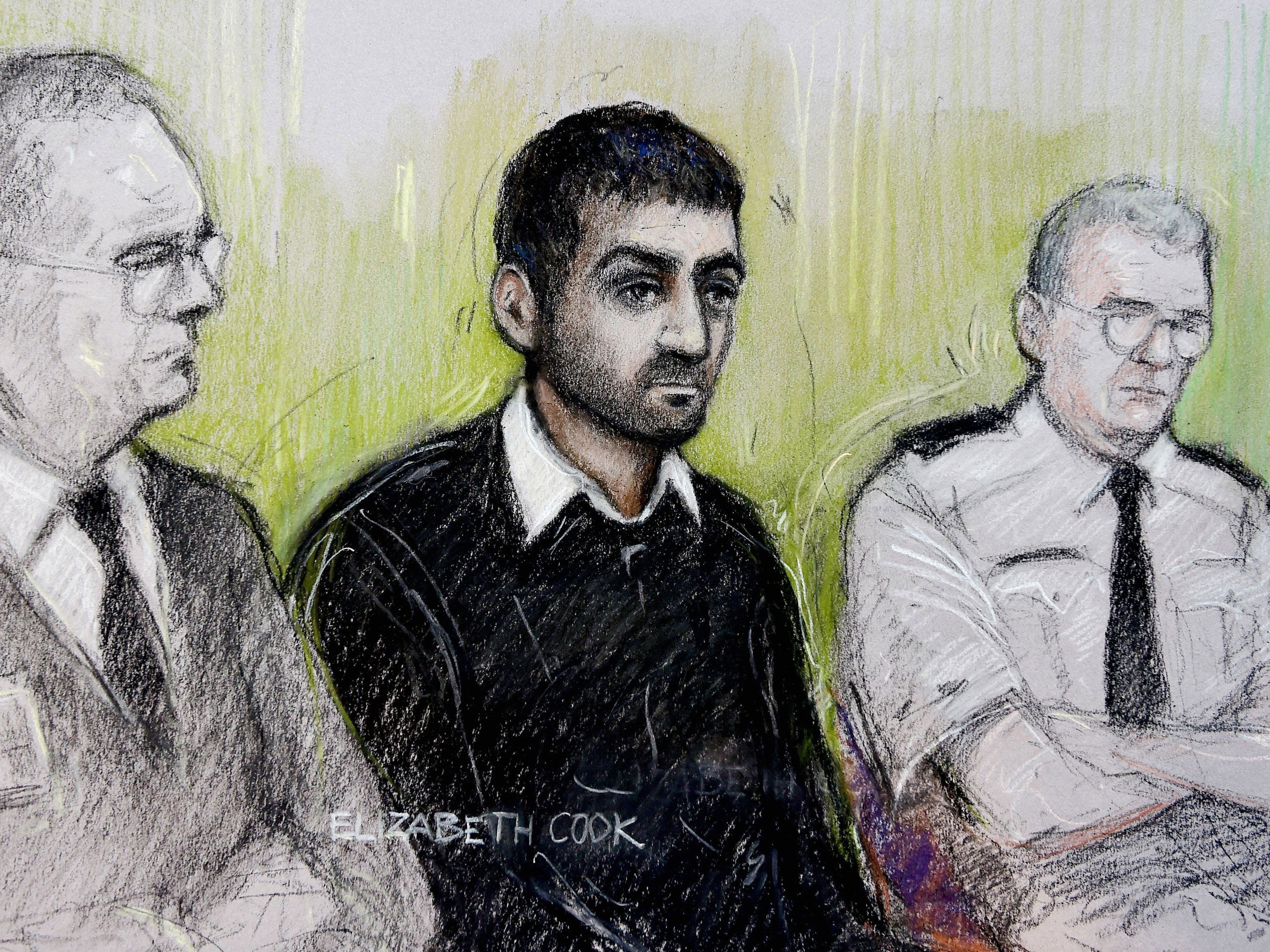Tony Blair 'terror attack': Former prime minister potentially target of an attack, court hears
Papers uncovered with former PM’s address and alleged terror preparations

A terror suspect plotting a Mumbai-style attack on the streets of Britain may have been targeting former Prime Minister Tony Blair, a court has heard.
As Britain’s first secret terror trial opened at the Old Bailey, prosecutors alleged Erol Incedal, 26, was found with the address of Mr Blair and his wife Cherie in a white Versace glasses case when he was first arrested last year.
Inside his black Mercedes, the court heard, detectives also discovered a handwritten note that read: “Oh you the believers, fight those of the infidel who are near to you. Why do you not fight in Allah’s cause for those oppressed men, women and children who cry out: ‘Rescue us from this town.’”
Richard Whittam QC, prosecuting counsel, said that Mr Incedal had not decided on a particular target, but that the Blairs’ address may “have some significance”. He said Mr Incedal is believed to have been plotting to attack one prominent person, or a small group, or perhaps an indiscriminate attack on a hotel, similar to the Mumbai atrocity in 2008 which left 174 dead.
The trial, which will largely be heard in secret, heard that police monitored Mr Incedal, from south London after his first arrest for a road traffic offence in September last year, when the address for the Blairs was first uncovered.
Mr Whittam QC said a covert listening device was then placed in the Mercedes which later recorded Mr Incedal saying they should “go to Plan B” after he and another man were stopped by police.
Mr Incedal was heard saying: “I hate white people so much. I might have to destroy everything and do something else. These pigs, I just feel like running them over. They are pigs. Kaffar call them pigs.”
In another chat, the court was told, he says: “I made a big mistake. Some very important stuff was in the car. If they find it, we’re f*****”.
Jihadist music was played in the car to the words “slaughter, looking at the enemy, looking at the bodies. In this operation they kill approximately 100 kaffar...”, the court heard. There was also talk of renting an “illegal house” because “you cannot carry rucksacks – it’s too dangerous”.
When Mr Incedal was arrested again the following month, the jury heard that police found bomb-making instructions on a secure digital card.
The court heard that Mr Incedal had the black flag of Isis as his iPhone’s wallpaper, and that he had taken a picture of a synagogue.
The prosecution said a search of his family home in Southwark, south London, revealed a document using the phrase “Plan A”, which included references to “two tennis rackets”, “one month’s surveillance”, “rent flat nearby”, uniforms, transport, and rehearsals.
Other papers referred to physical endurance, cover stories, secure communications and how to evade detection, jurors were told.
When Mr Incedal’s car was stopped for a second time by police who fired shotgun rounds into the tyres, he was arrested along with Mounir Rarmoul-Bouhadjar, also 26 and from south London.
Mr Whittam QC told the jury: ‘You will hear that (Mr Incedal) was actively engaged with another or others who were abroad.
“The prosecution case is that such engagement was for an act or acts of terrorism either against a limited number of individuals, an individual of significance or a more wide-ranging and indiscriminate attack such as the one in Mumbai in 2008; an attack on members of the public in general, particularly in a hotel.”
The entire trial was originally scheduled to be heard in secret, which would have been unprecedented. However, the decision was overturned by the Court of Appeal after a challenge by media organisations, who said open justice was the “hallmark and a safeguard” of the rule of law.
The Court of Appeal ordered one part of the trial to be heard in open court but other parts cannot be reported.
A second will be heard in private, and the third will be heard partly in private with a limited number of journalists present on the basis that they may not yet report the evidence.
Mr Whittam told jurors: “This is an exceptional case. Whilst it is one single trial, the evidence will be heard in three parts. It is important that you do not promote one part above the other in your consideration.”
Mr Incedal, said to be from Turkey, is charged with engaging in conduct in preparation of acts of terrorism and collecting or recording information likely to be useful to a person committing or preparing an act of terrorism.
Mounir Rarmoul-Bouhadjar, said to be of Algerian origin, was with Mr Incedal when they were arrested last October.
He has pleaded guilty to the charge of possession of documents or records likely to be useful to a person committing or preparing an act of terrorism on or before 13 October last year.
The trial continues.
